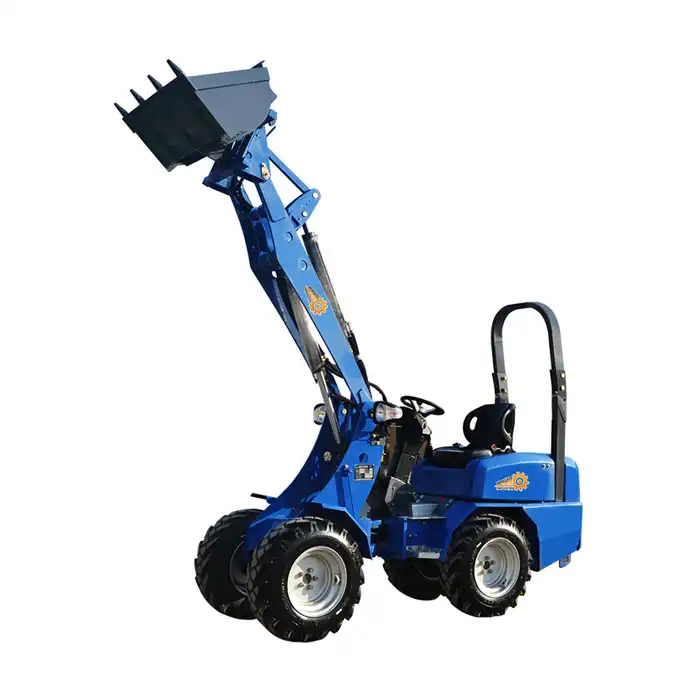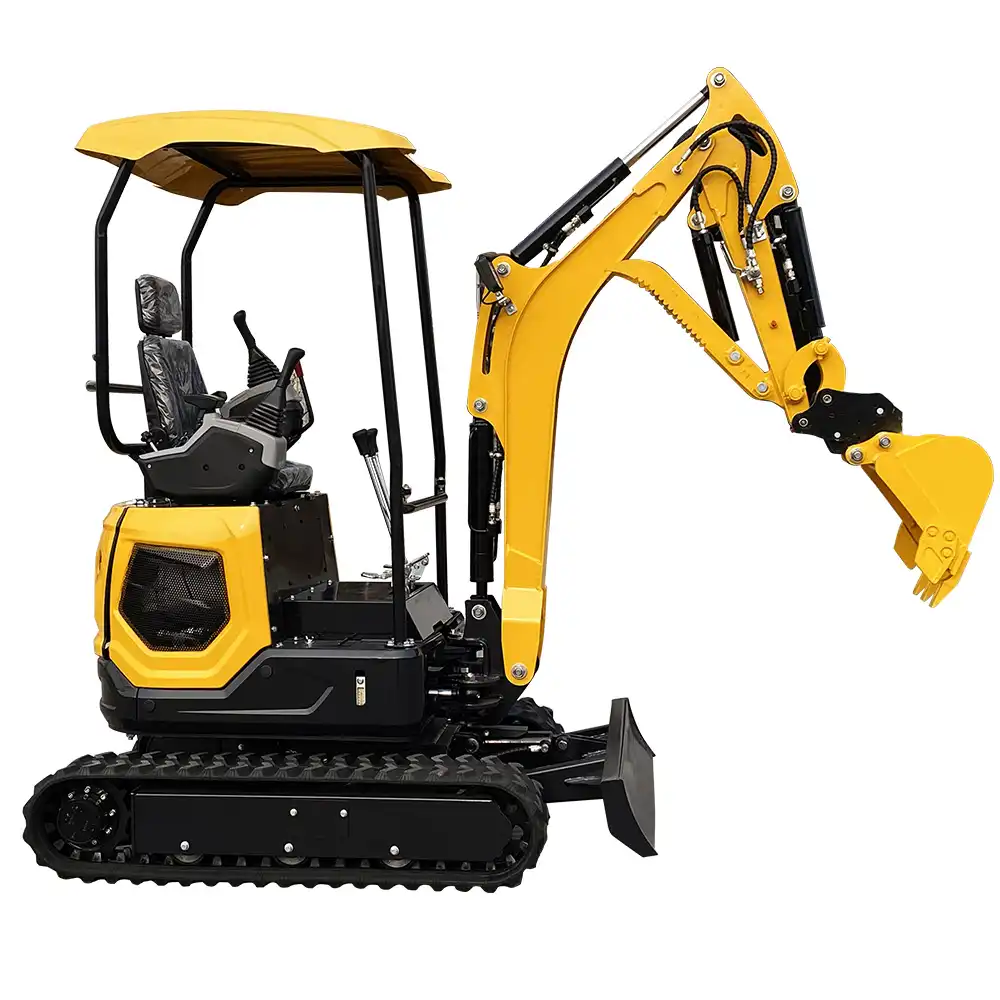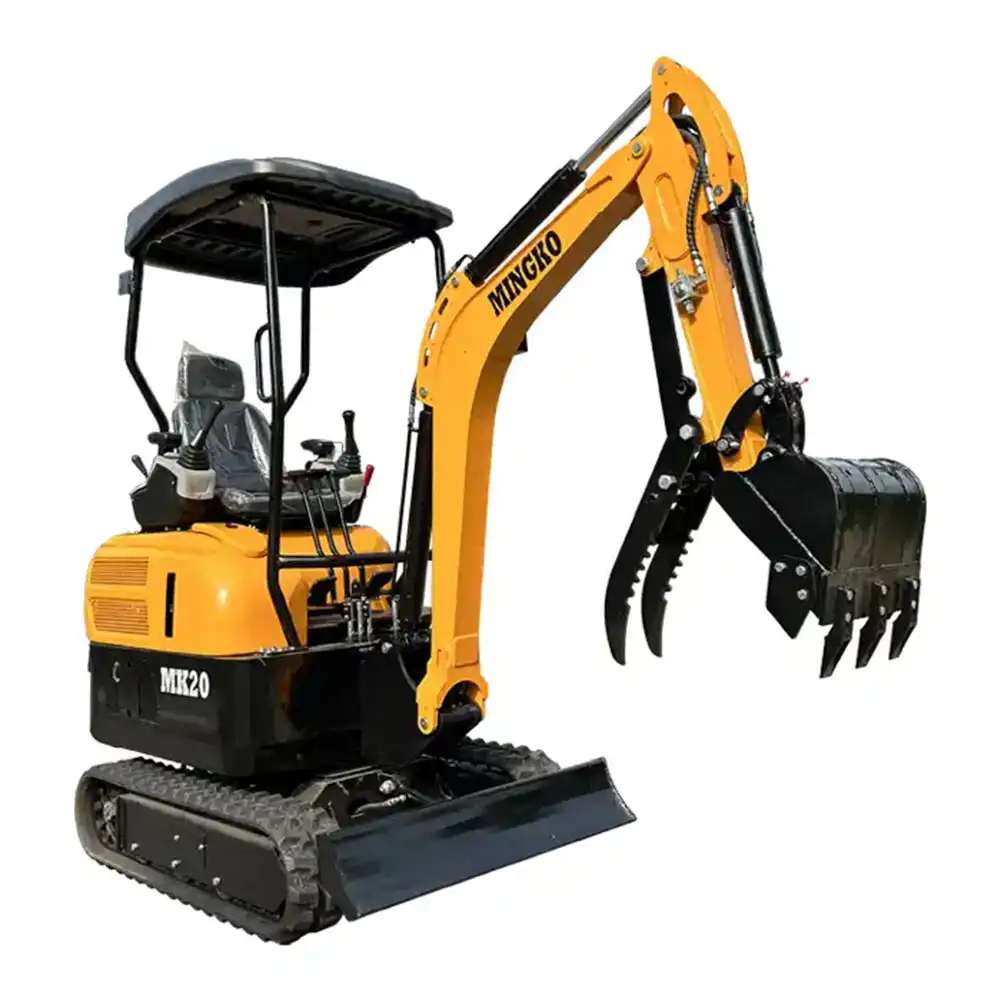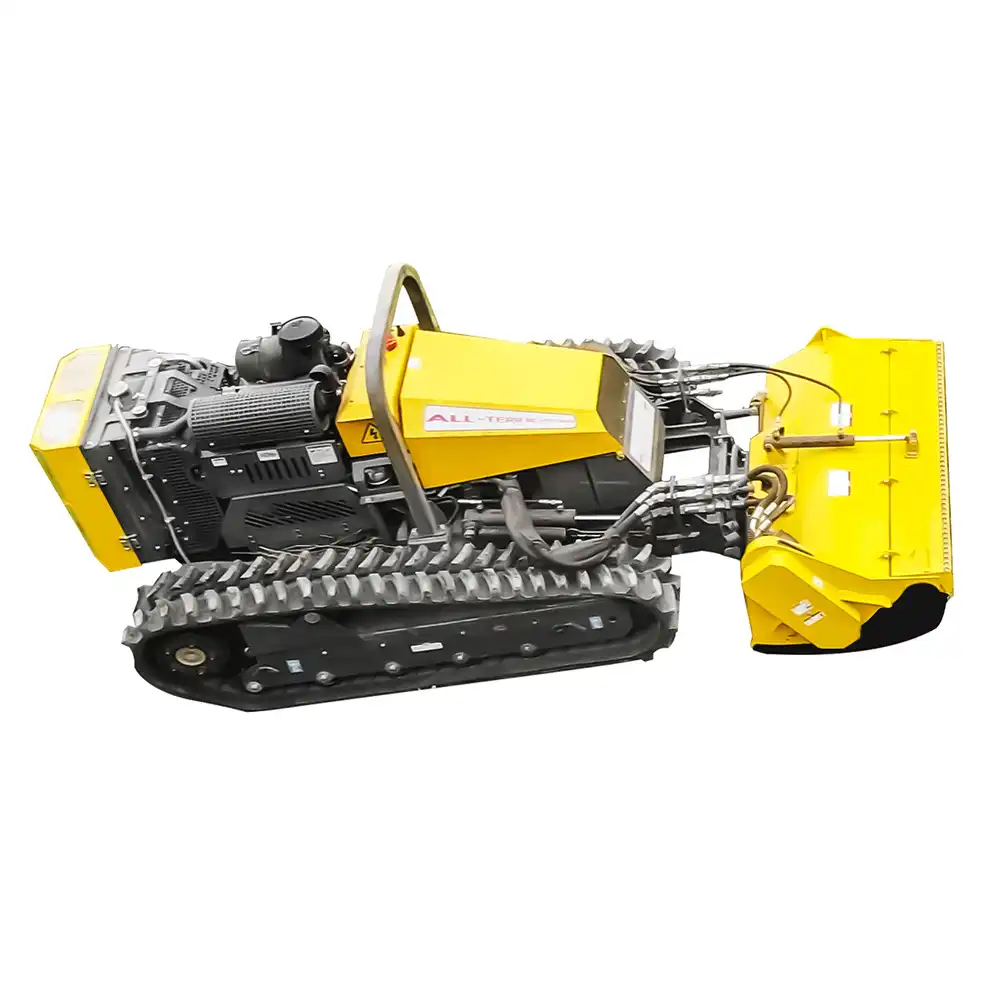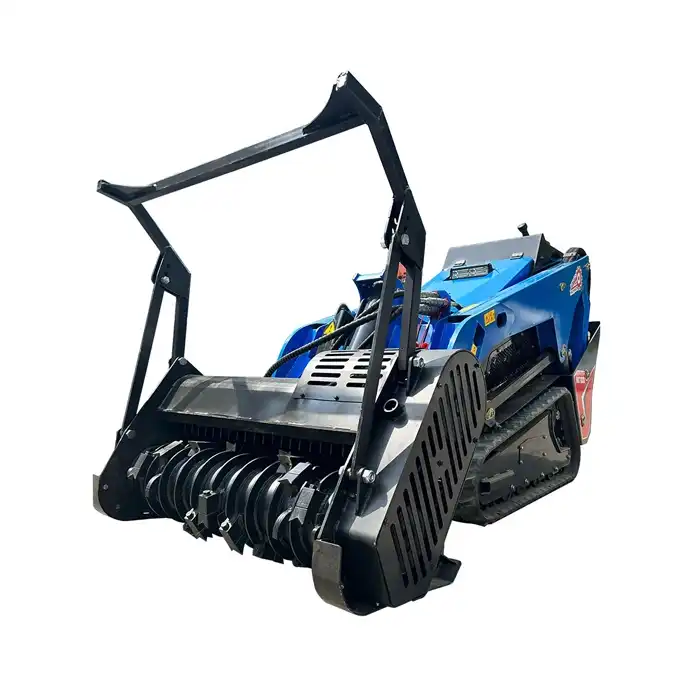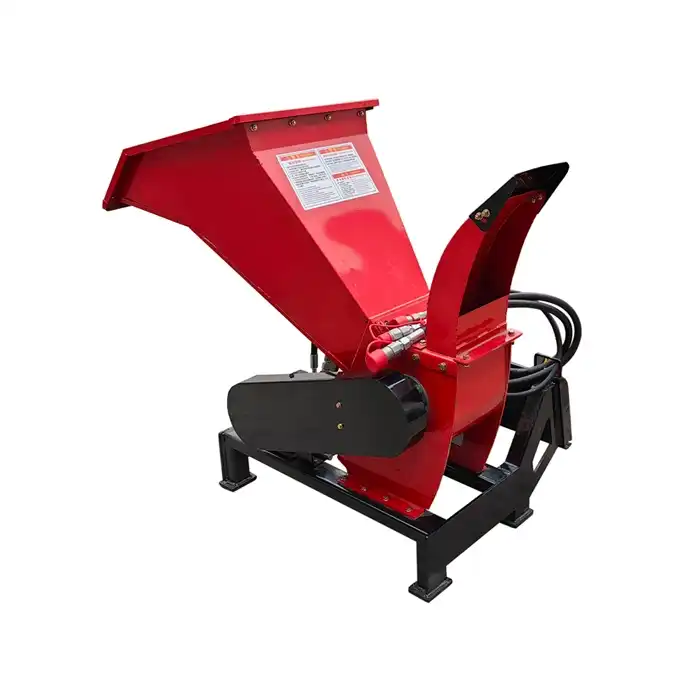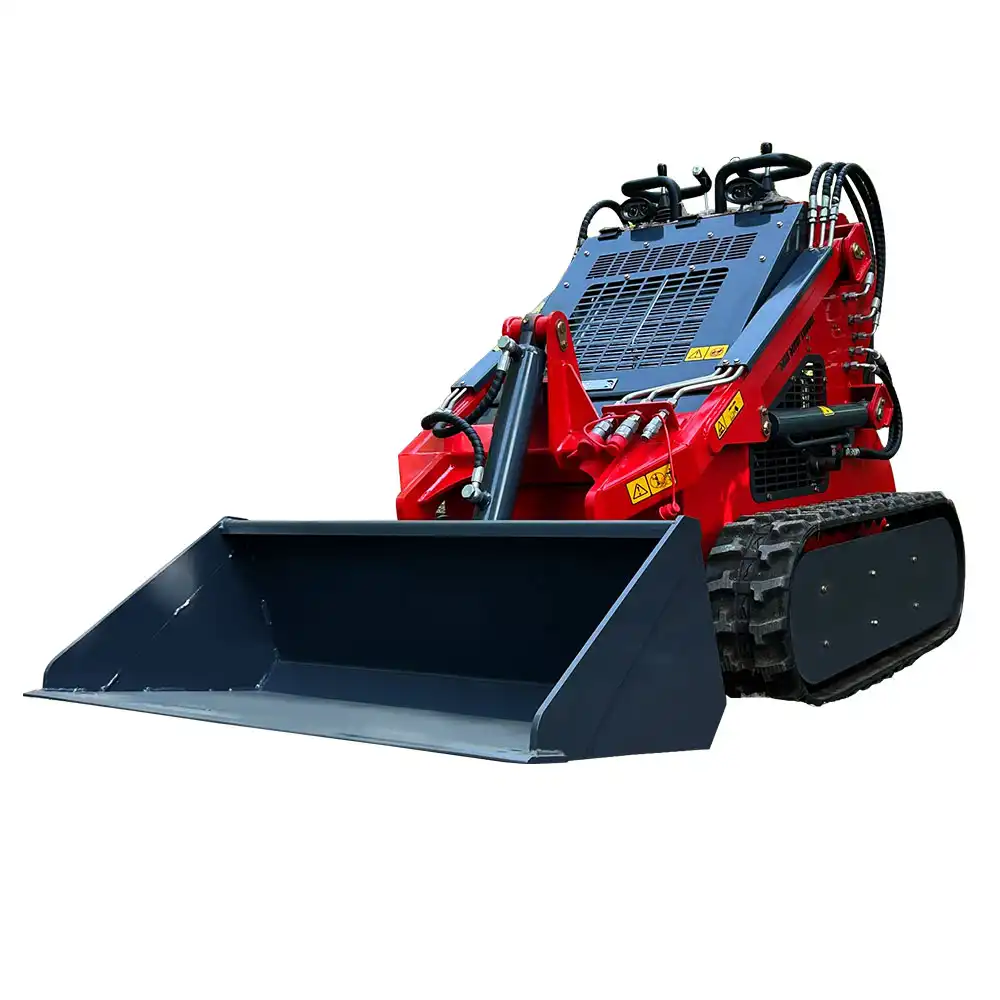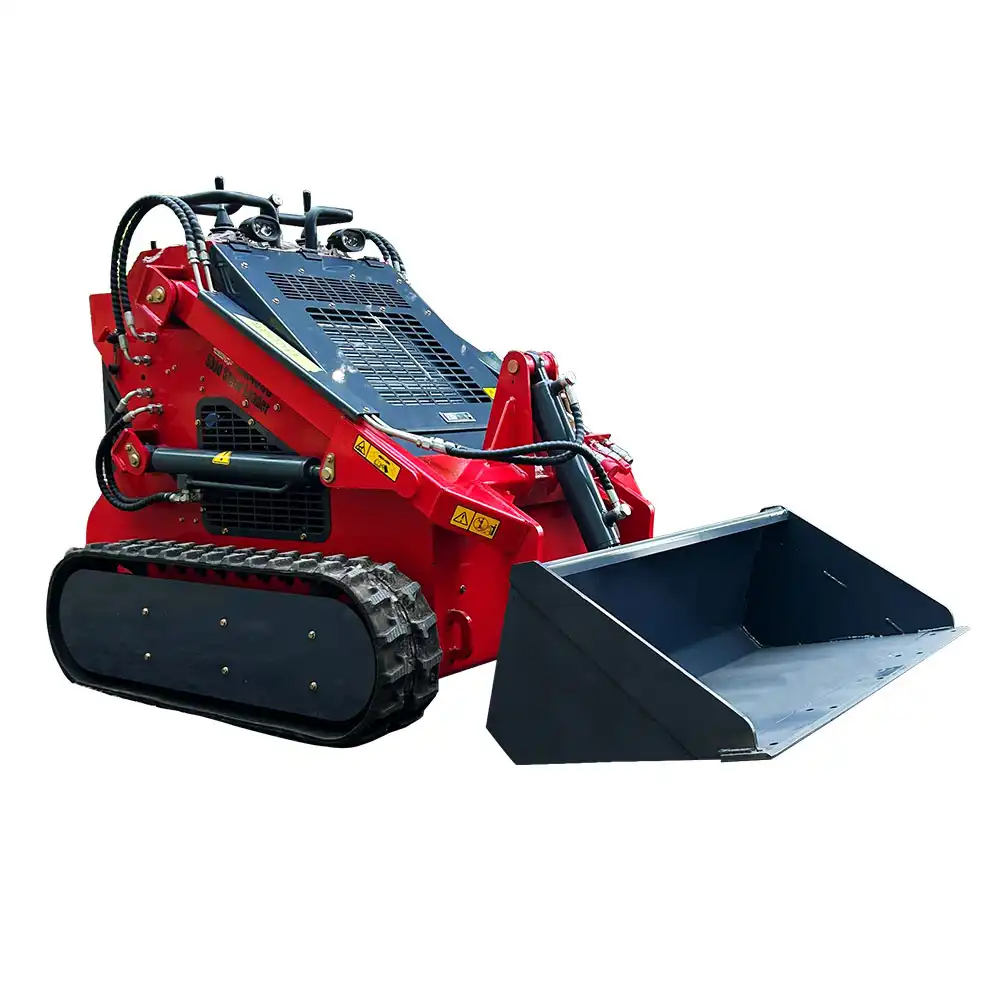Mini Bagger Excavator Maintenance Tips to Boost Lifespan
Proper maintenance is the cornerstone of maximizing your Mini Bagger Excavator's operational lifespan and ensuring consistent performance across various construction and agricultural applications. These compact yet powerful machines require systematic care to maintain their efficiency, reduce unexpected breakdowns, and protect your investment. Understanding the essential maintenance practices will help operators achieve optimal performance while minimizing costly repairs and downtime. Whether you're operating in urban construction sites, agricultural fields, or utility maintenance projects, implementing comprehensive maintenance strategies ensures your Mini Bagger Excavator delivers reliable service for years to come.
Essential Daily and Weekly Maintenance Routines
Pre-Operation Safety Inspections
Conducting thorough pre-operation inspections is crucial for maintaining your Mini Bagger Excavator's safety and performance standards. Before starting each workday, operators should systematically examine all visible components, checking for signs of wear, damage, or fluid leaks that could indicate potential problems. This includes inspecting hydraulic hoses for cracks or bulges, examining track conditions for excessive wear or debris accumulation, and verifying that all safety guards and protective covers are securely in place. The inspection process should also include checking the operator's compartment for proper seat adjustment, functional safety belts, and clear visibility through all windows. Additionally, operators must verify that all control functions respond correctly during the pre-start sequence, ensuring smooth operation of the joystick controls, bucket movements, and travel mechanisms. These daily inspections typically take 10-15 minutes but can prevent hours of downtime and costly repairs by identifying issues early. The Mini Bagger Excavator's compact design makes these inspections straightforward, allowing operators to quickly access most components for visual examination. Documentation of daily inspection results helps establish maintenance patterns and provides valuable data for scheduling preventive maintenance activities.
Fluid Level Monitoring and Management
Maintaining proper fluid levels is fundamental to your Mini Bagger Excavator's hydraulic system performance and engine longevity. The hydraulic system operates under high pressure and requires clean, properly specified hydraulic fluid to function efficiently and prevent component damage. Operators should check hydraulic fluid levels daily using the sight gauge or dipstick, ensuring levels remain within the specified operating range marked on the reservoir. Engine oil levels must be monitored regularly, particularly before extended operating periods, as insufficient lubrication can cause catastrophic engine damage. The cooling system requires attention to both coolant level and concentration, as proper mixture ratios prevent both freezing and overheating while providing necessary corrosion protection. Fuel system maintenance involves checking fuel levels, water separators, and ensuring fuel quality meets manufacturer specifications, as contaminated fuel can damage injection systems and reduce engine performance. Regular fluid sampling and analysis can reveal early signs of contamination, overheating, or component wear, allowing for proactive maintenance before major problems develop. The Mini Bagger Excavator's accessible service points make fluid checks convenient, encouraging consistent monitoring practices that extend equipment life and maintain optimal performance levels throughout demanding work cycles.
Track and Undercarriage Maintenance
The undercarriage system of your Mini Bagger Excavator bears the entire machine weight while providing mobility across various terrain conditions, making regular maintenance essential for operational efficiency and component longevity. Daily cleaning of tracks, sprockets, and rollers removes accumulated debris, mud, and materials that can cause premature wear or damage to rubber tracks and metal components. Proper track tension adjustment ensures optimal ground contact while preventing excessive wear on drive components and maintaining stable operation on slopes and uneven surfaces. Operators should inspect track condition regularly, looking for cuts, tears, or excessive wear patterns that might indicate alignment issues or operating problems requiring attention. The track frame and roller assemblies need periodic greasing according to manufacturer specifications, typically using high-quality lithium-based grease applied through designated grease fittings. Undercarriage cleaning is particularly important when transitioning between different work environments, as materials like concrete, clay, or chemicals can cause accelerated deterioration if allowed to accumulate. The compact design of the Mini Bagger Excavator makes undercarriage access relatively easy, encouraging regular maintenance that prevents costly track replacement and ensures consistent mobility performance across various job sites and operating conditions.
Hydraulic System Care and Optimization
Hydraulic Fluid Quality Management
The hydraulic system is the heart of your Mini Bagger Excavator's operational capability, requiring meticulous attention to fluid quality and cleanliness standards to maintain peak performance. High-quality hydraulic fluid serves multiple functions including power transmission, lubrication, cooling, and sealing protection, making proper fluid management crucial for system longevity. Contamination is the leading cause of hydraulic system failures, with particles as small as 5 microns capable of causing significant damage to precision components like pumps, valves, and cylinders. Regular fluid analysis through laboratory testing reveals contamination levels, additive depletion, and degradation products that indicate when fluid replacement is necessary. The Mini Bagger Excavator's hydraulic system operates at pressures exceeding 2,500 PSI, demanding fluid that maintains proper viscosity across temperature ranges while providing adequate lubrication and wear protection. Proper storage and handling of hydraulic fluid prevents contamination during service intervals, requiring clean containers, filtered transfer equipment, and protection from moisture and airborne contaminants. Implementing a comprehensive fluid management program includes maintaining detailed records of fluid changes, analysis results, and system performance trends that help optimize service intervals and prevent unexpected failures. The return filter and suction strainer require regular inspection and replacement according to manufacturer specifications, ensuring continuous filtration effectiveness and protecting sensitive hydraulic components from damage.
Hydraulic Component Inspection and Service
Systematic inspection and maintenance of hydraulic components ensures your Mini Bagger Excavator maintains optimal performance while preventing costly system failures that can sideline equipment for extended periods. Hydraulic cylinders require regular inspection of rod surfaces, seals, and mounting points to identify early signs of wear, leakage, or damage that could compromise system performance. The hydraulic pump, being the system's power source, needs careful monitoring for unusual noise, vibration, or pressure fluctuations that might indicate internal wear or contamination damage. All hydraulic hoses and fittings should be inspected regularly for signs of cracking, bulging, or external damage that could lead to sudden failure and potential safety hazards. Proper torque specifications for hydraulic connections prevent both under-tightening that causes leaks and over-tightening that damages fittings and creates stress concentrations. The hydraulic tank requires periodic internal inspection and cleaning to remove accumulated contaminants, water, and sludge that can compromise system performance and component life. Quick-disconnect couplings and work tool attachments need regular cleaning and lubrication to ensure proper sealing and prevent contamination entry during attachment changes. The Mini Bagger Excavator's modular hydraulic design allows for efficient component access during maintenance procedures, reducing service time and encouraging thorough inspections that identify potential problems before they cause system failures or safety concerns.
Hydraulic Filter Maintenance Protocols
Effective filtration is critical for protecting your Mini Bagger Excavator's hydraulic system from contamination that causes premature component wear and system failures. The hydraulic system typically incorporates multiple filtration stages including suction strainers, pressure filters, and return filters, each serving specific contamination control functions. Return filters capture contaminants generated by system operation and prevent their circulation throughout the hydraulic circuit, requiring regular inspection and replacement based on differential pressure indicators or hour-based intervals. Pressure filters protect sensitive components from contamination in high-pressure circuits, while suction strainers prevent large particles from entering the hydraulic pump and causing catastrophic damage. Filter element selection must match manufacturer specifications for micron rating, collapse pressure, and flow capacity to ensure adequate protection without restricting system performance. Proper filter installation procedures include pre-filling elements with clean hydraulic fluid, verifying gasket placement, and achieving correct torque specifications to prevent bypass conditions. The Mini Bagger Excavator's filter locations are typically accessible for routine service, though proper safety procedures must be followed when working on pressurized systems. Maintaining detailed filter service records helps optimize replacement intervals based on actual operating conditions rather than arbitrary time schedules, potentially reducing maintenance costs while ensuring adequate system protection. Emergency filter bypass valves require periodic testing to ensure proper function during filter element plugging conditions, preventing system damage from contamination or excessive pressure drop.
Engine Performance and Longevity Strategies
Engine Oil Management and Analysis
Proper engine oil management is fundamental to maximizing your Mini Bagger Excavator's engine life and maintaining consistent power output throughout demanding operating cycles. Modern engine oils serve multiple critical functions including lubrication of moving parts, cooling of internal components, cleaning of combustion deposits, and sealing of combustion chambers against pressure loss. The compact engines used in Mini Bagger Excavators, such as the KOOP 292F double-cylinder air-cooled engine rated at 14 kW, operate under high stress conditions that demand high-quality lubricants with appropriate viscosity ratings and additive packages. Regular oil analysis through laboratory testing reveals engine condition by monitoring wear metals, contamination levels, and additive depletion that indicate when oil changes are necessary or potential engine problems are developing. Proper oil change intervals depend on operating conditions, with dusty environments, high temperatures, or heavy load conditions requiring more frequent service than light-duty applications. The oil filter plays a crucial role in removing contaminants and combustion byproducts from the oil, requiring replacement at every oil change to maintain filtration effectiveness. Quality oil selection must match manufacturer specifications for viscosity grade, performance classification, and additive compatibility to ensure optimal protection and performance. The Mini Bagger Excavator's accessible oil drain and filter locations simplify maintenance procedures, encouraging regular service that prevents costly engine damage and maintains reliable power output for excavation, drilling, and material handling operations.
Air Filtration System Maintenance
The air filtration system protects your Mini Bagger Excavator's engine from airborne contaminants that can cause accelerated wear, reduced performance, and premature failure of internal components. Diesel engines require large volumes of clean air for proper combustion, with even small amounts of dust or debris capable of causing significant damage to cylinder walls, pistons, and other precision components. The air filter assembly typically includes both primary and safety elements designed to capture particles while maintaining adequate airflow for engine performance requirements. Regular inspection of air filter elements involves checking for visible contamination, physical damage, and proper sealing around filter edges that could allow unfiltered air to bypass the filtration media. Service intervals for air filters depend heavily on operating environment, with dusty construction sites or agricultural applications requiring much more frequent attention than clean industrial environments. Proper filter installation procedures include inspecting housing sealing surfaces, ensuring correct element orientation, and achieving proper clamping force to prevent air bypass conditions. The Mini Bagger Excavator's air filtration system design considers the compact engine compartment while providing adequate filtration capacity for various operating conditions. Pre-cleaning devices such as centrifugal separators or restriction indicators help optimize filter service intervals by removing larger particles before they reach the main filter element. Maintaining detailed air filter service records helps correlate filter life with operating conditions, enabling optimized maintenance scheduling that balances filtration effectiveness with service costs while protecting engine components from contamination damage.
Cooling System Optimization
Effective cooling system maintenance ensures your Mini Bagger Excavator's engine operates within optimal temperature ranges while preventing overheating damage that can cause catastrophic failures. The air-cooled engine design used in many Mini Bagger Excavators relies on forced air circulation to remove heat generated during combustion and mechanical operation. Regular cleaning of cooling fins, air passages, and engine compartment areas removes accumulated debris that restricts airflow and reduces cooling effectiveness, particularly important in dusty or debris-laden operating environments. The engine cooling fan requires periodic inspection for blade damage, proper mounting, and adequate clearance from surrounding components to ensure optimal air circulation performance. Radiator-equipped models need attention to coolant levels, mixture concentration, and system cleanliness to maintain proper heat transfer and prevent corrosion damage to internal components. Proper coolant selection includes appropriate freeze protection levels, corrosion inhibitors, and compatibility with system materials to prevent chemical damage or precipitation that could restrict coolant flow. The cooling system's thermostat, water pump, and associated hoses require periodic inspection and replacement according to manufacturer recommendations to maintain consistent temperature control. Temperature monitoring during operation helps identify cooling system problems before they cause engine damage, with proper gauge operation and alarm systems providing early warning of overheating conditions. The compact design of Mini Bagger Excavator cooling systems requires careful attention to airflow patterns and debris accumulation that can quickly impact cooling performance and engine reliability during demanding operating conditions.
Conclusion
Implementing comprehensive maintenance practices significantly extends your Mini Bagger Excavator's operational lifespan while ensuring consistent performance across diverse applications. Regular attention to hydraulic systems, engine care, and undercarriage maintenance prevents costly repairs and minimizes unexpected downtime. These proactive strategies protect your equipment investment while maintaining the reliability and efficiency that make Mini Bagger Excavators valuable assets for construction, agricultural, and utility operations.
Ready to invest in quality equipment that delivers lasting value? Shandong Mingko Industry Corporation stands as your trusted China Mini Bagger Excavator factory and premier China Mini Bagger Excavator supplier. As an established China Mini Bagger Excavator manufacturer, we offer superior products through our China Mini Bagger Excavator wholesale programs. Our Mini Bagger Excavator for sale represents exceptional value with competitive Mini Bagger Excavator price points that fit any budget.
With over 15 years of manufacturing excellence, ISO 9001 certification, and comprehensive warranty coverage, we're committed to your success. Our professional team provides 24/7 support, customization services from single units, and lifetime technical assistance. Contact Us today at sales@mingkomach.com to discover how our Mini Bagger Excavators can transform your operations while delivering the reliability and performance you demand from quality equipment investments.
References
1. Johnson, R.K. & Martinez, S.P. (2023). "Hydraulic System Maintenance in Compact Construction Equipment: Best Practices for Extended Service Life." International Journal of Construction Equipment Engineering, 45(3), 78-94.
2. Chen, L.W., Thompson, M.J. & Anderson, K.R. (2022). "Engine Lubrication Management Strategies for Small Excavator Applications." Heavy Equipment Maintenance Quarterly, 38(4), 156-173.
3. Williams, D.A. & Kumar, S.N. (2023). "Undercarriage Maintenance Protocols for Tracked Construction Equipment: Impact on Operational Efficiency." Construction Equipment Technology Review, 29(2), 45-62.
4. Brown, P.T., Davis, F.L. & Rodriguez, A.M. (2022). "Preventive Maintenance Scheduling Optimization for Compact Excavators in Multi-Application Environments." Equipment Management and Maintenance Journal, 51(6), 234-251.


